Good Time: An Interview with director Josh Safdie
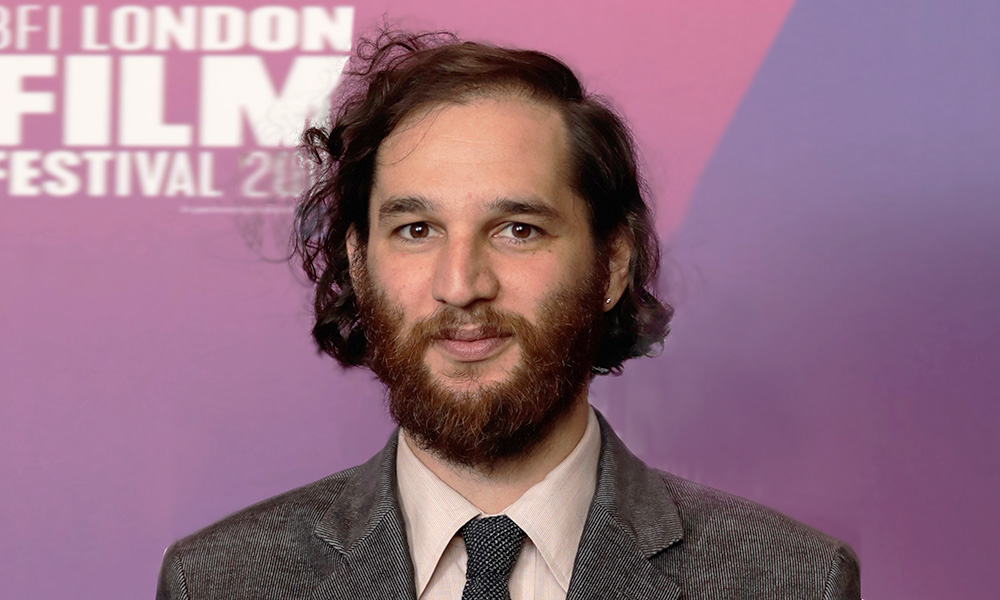
Good Time is the third film from directing-duo and brothers Josh and Ben Safdie, starring Robert Pattinson as Constantine “Connie” Nikas, a guy who attempts to rob a New York bank with his younger brother Nick who has learning difficulties, played by Ben Safdie himself. A giant leap away from his seemingly inescapable past as the Twilight pin-up, Robert Pattinson’s gritty performance and the refreshingly odd-ball pace and approach of the film has the critics stirred up in a frenzy.
We were able to snag a quick chat with co-director Josh Safdie ahead of the movie’s premiere at the London Film Festival to talk about fighting off Pattinson-targeted paparazzi, violence and prison as a metaphor in the film.
Hi Josh, so great to meet you. So Good Time – it’s the third feature film you’ve made with your brother. When did you two decide to start filming together?
Actually fourth film – we did a documentary too. But yes we decided we wanted to work with each other when I was in high school, when I decided to film a play – a video adaptation of Who’s Afraid of Virginia Woolf. iMovie had just come out and I said to my brother: “This program just came out. I’m gonna go film this movie. You need to learn the program, so that when I’m done we can edit it together.” And that was basically the beginning of our collaboration – well, you could go back further to when we were little kids with our dad’s video camera and we never really stopped. So even the first film that I directed that he wasn’t a part of, he still was. It was only because he wasn’t in New York that he wasn’t a part of it.
In this particular film, you are both directing, but Benny’s also starring in it and you co-wrote it?
I wrote it with someone else. But he edited it with the person I co-wrote it with.
And what does that set-up allow you to do artistically?
It allows you to go further out on a limb with your ideas because you know that someone’s anchoring you. Because I can go really far in an idea knowing that he’s going far in his idea and we’ll meet somewhere in the middle. We have different sensibilities, so I can really indulge in trying to figure out a way to communicate something visually as aggressively and as romantically as possible knowing that Benny is the pragmatist in the room saying: “Well, okay, we need to cut this shot because we don’t have time and it’s not gonna make its way into the edit”. So, you know, it’s a good push and pull.
Benny’s character Nick has learning difficulties – was that a starting point for the film?
No, that was actually a late edition to the script. Benny had been developing that character with Ronnie [Bronstein], who I wrote the film with, for a project that never came about seven years prior to when we were filming in 2010. And it was a very deep, rich history that was written for that character. His name was Jordan, not Nick, and we always thought it would be interesting if that character had a brother who didn’t want him to be a part of the system. Somebody who rejected this idea of bureaucratic mental assistance. And because he thought that it was basically signing a death wish – which it is, in some regards – that’s where the kind of ethos drifted from. It originated from there in the idea of having this character we knew, and thinking: “Well, what if he had a brother? And what if that brother was Connie?”, who we already developed, and that’s where the backstory started to become really deep and interesting for us. I would have Benny write Rob in character. Or I’d have Rob write Benny in character, as if he was writing from jail, trying to break down the propaganda of the grandmother – so they’d have this great correspondence that I was cc’ed on. Yeah, it was cool.
How do you think an actor can show authenticity while also avoiding stereotypes about this kind of condition?
You mean my brother’s performance?
Yes
He’s not playing that character, that character is inside him. So there were certain things that happened to him when he was growing up that had we not had these other, later influences on our lives as teenagers, it’s possible Benny could’ve ended up like Nick, in some way. Obviously, you’re born that way, but that character is inside of him. Having played and done all this research for that other character, then when we were first casting Good Time, we originally were looking at actors with real disabilities, and we ended up realising that because the schedule was so aggressive, and we were doing action set pieces, that you can make a film with an actor with disabilities but you can’t really put them through an arduous repetitive process – like an action sequence – that takes two days to film 20 seconds of edited movie. You need to have more dialogue scenes, for example. So in the process of casting we had all these really interesting, in-depth interviews with people, and I think that was also very helpful for Benny to understand the nuance of these characters and these people.
And how was it working with Robert Pattinson? He perhaps carries some stigma from the Twilight series but he’s also worked with some incredible directors, and this was a really big, meaty role for him.
You know, it was kind of like working with someone else who I’ve street-cast before. I didn’t know him from the Twilight things, I missed that boat. So he wasn’t that person. He was somebody who was playing largely supporting roles in films – I’d seen two films that he’d been in at the time. One was Rover, the other one was Maps to the Stars. Then I also watched Cosmopolis too. In Cosmopolis he’s the lead but the other two he was supporting roles. So I didn’t really know him as “that”. I knew him as Connie Nikas in a weird way. I never even really got to know him that well – I mean, we met, and he was so enthusiastic, and then we decided to develop the movie. It’s weird being a filmmaker because you collaborate so deeply with people yet you don’t really spend time together. But you’re spending time together in the name of a project, so it’s work-based, and then, after the film is done, then you start to have a real friendship. Like, I didn’t have a real friendship with Rob until the film was done. Of course, you get close to somebody while you’re working, but it’s a different type of closeness, because, there’s this other person in the room, and it was this character that he was playing always. It’s a strange thing, I don’t really know how to describe it, it’s weird. But I realised early on when we were changing his hair and someone in the salon called the paparazzi, and there were all these paparazzi outside, waiting for him. That was the first time I really… I mean, I’d seen people take pictures of him before but I’d never really experienced being trapped in a place, where we didn’t really want people to know where he was going, and it was a big thing. We wanted to keep the film a secret, to avoid the self-consciousness of having people constantly following you. So I remember that happening, and thinking: “Oh man, how are we gonna make this movie? There’s people outside the salon where he’s getting his hair permed. Like, this is gonna be difficult…” And then, it just made us work that much harder to kind of keep things secretive. And also, we realised that he has to be in character all the time and, if he exudes the character, people won’t think that he’s Rob Pattinson. And also, we can’t go to, like, shi-shi salons, you know (laughs) – we had to keep him away from where paparazzi would hang out.
And why the title Good Time?
That was just the title of the movie. So originally, the film was more of a prison-based movie. And Good Time is a prison slang term: if you behave well, you get released on your “good time”. And basically, your good time is, like, if you have three years, you’re up for parole, and they leave 26 months, your good time ends up being ten months. So you get released in ten months – you’re out in the real world, but you’re on parole. So people are out on their “good time”, but they’re basically still in prison. They’re just not in the walls, the prison walls. And the irony of it is that most people who get released on their good time end up violating, and going back, and serving their remainder. So, I thought it was interesting. It showed up in Buddy Duress’s prison journals that I had him keep. And he would talk about good time all the time, like: “I’m gonna get out on good time”. And it was like this promise, this good time, this good time, this good time… So, I liked the idea of naming the movie with this promise of good time that maybe you’d never get to see. It’s this kind of elusive thing, just like freedom; you don’t really ever attain freedom – you get these glimpses of it, but it’s never really there. It’s not like a permanent status, freedom. Neither is good time, so.
And in that sense, can the prison almost be seen as a metaphor?
Sure, yeah, absolutely. I mean, yeah we’re all in prison, right? The mind is a prison (laughs). Yeah, I mean, in America, the prison ethos isn’t just relegated to the penal system. It’s your Twitter followers, and the people who you follow, and your echo chambers. Never being able to break free of that. It’s not wanting to change your hairstyle for ten years, you know, you’re moving out of the city into the suburbs, where everyone in your neighbourhood is the same. So you never really can actually break out and experience anything else but what’s predisposed. It’s frustrating when you read about the lack of freedom people have, and I believe that it’s all kind of thwarted from prison culture, in America, at least.
You were mentioning Buddy Duress who plays Ray. He was in prison and you based part of the dialogue on some of your personal experiences speaking to him.
Well, he’s a friend of mine, and I worked with him on a previous movie. When he went to prison, when he violated parole, I would talk to him every day, hours and hours. I could write Moby Dick in his voice, I know how he speaks so much. I mean now, he’s like a professional actor, and he’s complaining about these roles, and I say: “I kind of wish you were still complaining about some guy in the bunk next to you”. Because it’s better, it’s healthier. But yeah, he’s always an inspiration and he’s a really unique guy. I always find it interesting that he’s been through such tough circumstances, because, he really just has his own beat that he moves to. His prison journals were very inspiring for the film.
There’s a lot of violence in the movie, and some specific scenes get quite blunt. What role do you think violence plays for you?
Well violence – there’s only three or four moments of violence. It’s just, we portray them so bluntly, and I think that it’s not usually portrayed that way. I mean, it’s tough to make it feel “felt” in a movie in this day and age because we’ve had so many of these superhero movies, and people get shot and there’s no blood. So violence has become this kind of thing in quotes and you don’t really feel it ever. There’s not one gun in our entire movie, and that was a very important thing for my co-writer, he said: “I don’t want one gun in this movie, there’s enough guns out there”. And also, aside from philosophically, he’s like, “they don’t mean anything anymore”, like that’s the problem, that’s why there are so many shootings in America. It’s because it doesn’t mean anything anymore, a gun doesn’t actually mean anything. So it’s this obsession that goes back to Columbine. Shootings are absurd. So I think the violence is so felt because it feels so of the moment, it feels like: “Oh, someone’s actually getting hit here, there’s no artifice here”. There’s no easy way out, it’s like, OK, he has to punch this guy, because otherwise this guy will stop him from being free, and it’s ugly. It’s ugly. You know, I always find it so absurd to think that people punch each other. And it happens, you know – I’ve been in the hospital, I’ve been knocked unconscious, it sucks, so, I don’t know.
I’ve got one more question. Er, did you make Robert Pattinson give a handjob to a dog?
Well, Rob has a funny sense of humour, and I told him before he went on Kimmel, I said: “Do me a favour and make fun of me on live TV”. And he says, “OK”. And that was his idea of making fun of me. And he didn’t realise it would… I was trying to work, I was trying to write my next film, do edits and that whole day was ruined, because I just had paparazzi, and TMZ and PETA, and my publicist was constantly calling me, like: “We have to release a statement!”. And I was like: “I didn’t do this!”.
That’s very funny.
Yeah. That dog actually died, too.
Oh gosh.
Sadly.
And what’s next, what’s the next project?
We’re producing something that starts shooting in a few weeks. We have a music video that will be out probably in ten days, by a really cool artist. Uh, a TV show. And Uncut Gems hopefully soon. I don’t know, for the first time in my life I have things in my calendar 18 months ahead of me, and it’s crazy – I’ve never experienced that before. So I’m just kind of waking up and thinking: “Okay, today I’m working on this”. So I have all these different minds, multiple personalities (smiles).
Thank you so much for your time Josh. And congratulations on a fantastic film.
Sarah Bradbury
Photo: John Phillips/Getty Images
Good Time is released nationwide on 17th November 2017. Read our review here.
Watch the trailer for Good Time here:

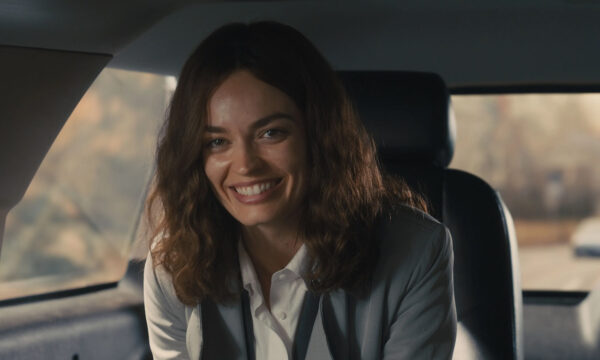
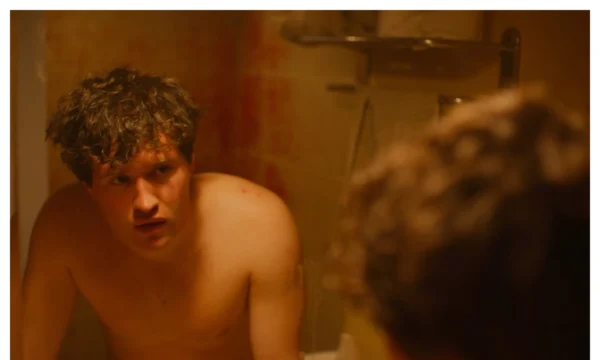

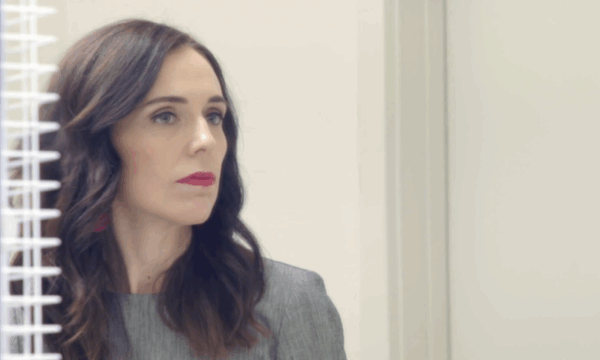
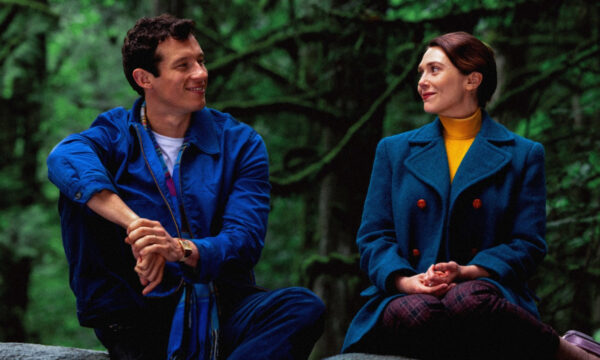
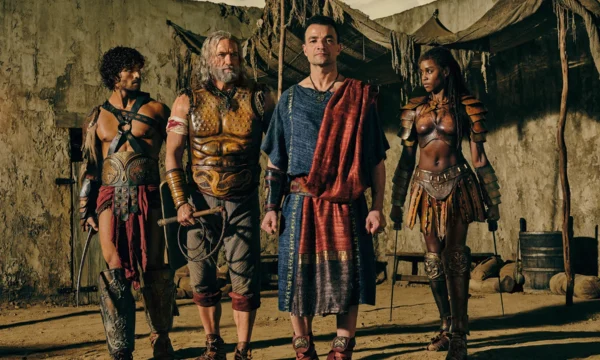
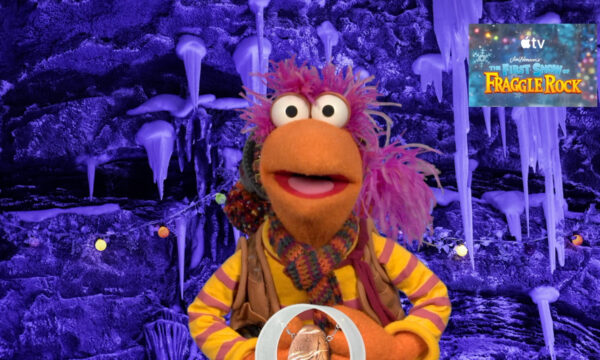
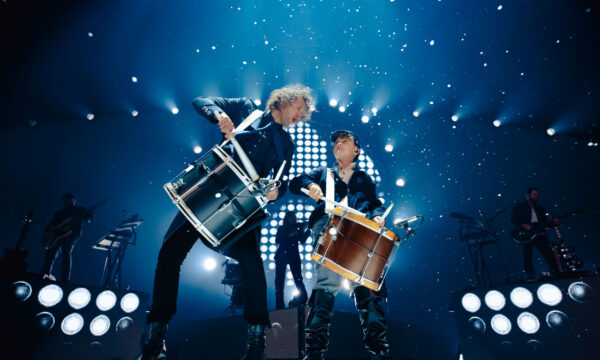



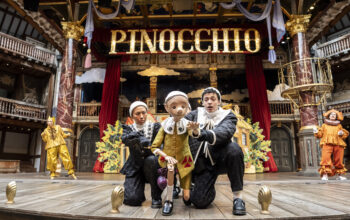











Facebook
Twitter
Instagram
YouTube
RSS